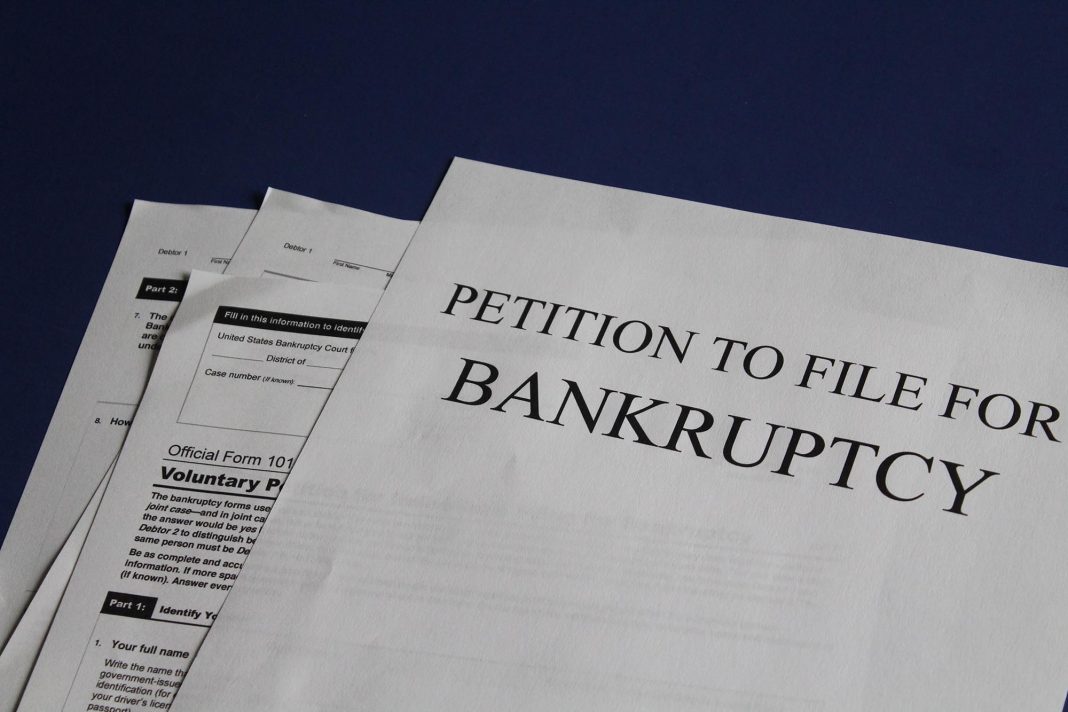Bankruptcy is a debatable term that comes from the Italian word “banca rotta,” ‘banca’ meaning bench and ‘rotta’ meaning broken. During ancient times in Italy, when people who borrowed money could not return it back, tables of the moneylenders were broken. This led to the term being significant.
It is a widely used word now, especially in the corporate and business world. When companies are facing financial distress, they tend to turn towards declaring bankruptcy as it can relieve them from the stress for a certain amount of time. It can also lead to future consequences in some cases, especially when they are a large corporation.
Types of Bankruptcy
There are two types of bankruptcy cases: Chapter 7 and Chapter 11, depending on the size of the company and the current state it is in. Chapter 7 is usually followed by a company that is a corporation or is handled by partners. In this case, the assets of the company are handed over to be liquidated, which means selling the assets to clear off the debt. The company owners are left with almost no money and they need to seek new ways to restart, which is generally from scratch.
Chapter 11 allows the company to pay its debts in monthly or quarterly installments, depending on the scenario or the creditor. This chapter is usually followed by smaller companies, again depending on the situation. It allows the company to keep its assets and function normally.
At times, a few debts are waived off, and the company is left with only a certain amount to pay. There are, of course, certain benefits and disadvantages associated with both kinds of bankruptcies.
Here are a few pros and cons associated with declaring bankruptcy for small business owners.
Pros
Getting Rid of All Debts

This is specifically beneficial for small companies with individual owners. This advantage will give you the insight on avoiding loans and repaying back on time, hence ensuring you a brighter future.
Reliability on the Bankruptcy Trustee
Declaring bankruptcy is a burdensome stage and is considered a severe period in your life. When you already have the piling debt on your head, you have to watch out to save your assets and also look for other options for survival and to move on.
According to Chapter 7 bankruptcy, you can put your company in a transparent state by liquidating it, if your business is a corporation or an LLC, and it will, in turn, be your bankruptcy trustee’s responsibility to gain money from your assets by either selling it or putting it on mortgage to clear all your debts.
This will also give you enough time to seek out other options and look for better prospects to restart your life. Selling off your assets and paying your debts in itself is a big hassle, which you can avoid doing during this stressful period. Hence, the reliability of your bankruptcy trustee to clear the situation is a major benefit.
Automatic Stay
The ‘automatic stay’ is a situation in which your company will be put on hold, and this will prevent piling up of any of your debts or interests. Once your bankruptcy case is in action and you are put in the automatic stay, no creditors can trouble you about paying their debt. It also saves your assets from being examined or closed.
Quicker Process
Chapter 7 is usually a quick process and requires visiting the court only once. If you own a small business and want to liquidate the company to have a fresh start, you will be exempted from all debts even when the asset value is not close to equivalent to the debt. In this case, negotiating with creditors is easier, as well.
Cons
Not All debts Are Forgiven
As was mentioned, freeing away from certain kinds of debts such as medical and credit card debts is possible, but other types such as student debt, alimony, and many others cannot be exempted.
Freezing and Selling Your Assets
In some cases, your assets will be sold in order to pay all your debt. It is not only emotionally painful to go through this process, but you will also be left with almost nothing to start your life over. However, some situations might provide you the benefit of saving your assets by using bankruptcy exemptions. You will need to hire a very knowledgeable bankruptcy lawyer to make use of this benefit.
Drowning of Your Credit Score
Building your credit score in the professional world takes years of hard work and reputation. Declaring bankruptcy can lead to the drowning of your credit score in an instance and it will take more than 7 years to erase the seal of bankruptcy from your credit report. This will lead to issues in the future if you need to seal business deals or take loans. Basically, cases involved with credit will be hard to crack.
Whether or not to file bankruptcy is up to you and depends on the seriousness of the situation. Declaring any of these chapters has its own advantages and disadvantages. So, if the situation is manageable, you should try to avoid doing that, but if it is absolutely complex and is hard to comprehend, filing for bankruptcy can help you start over at the earliest.





